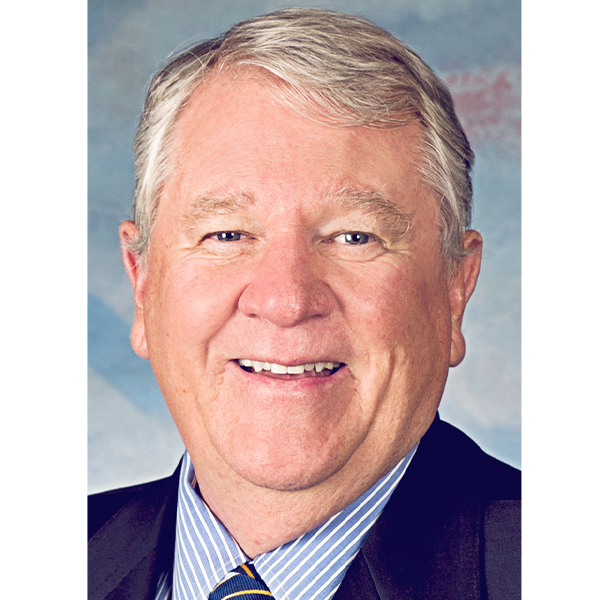Tears of Enthusiasm
The sun shines on Murray Smith, as suit-clad, he treads five blocks of grey sidewalk—from 501 Pennsylvania Avenue to Capitol Hill in Washington, D.C.—pitch book enclosed in his grip. It’s 2006, a hot day in May, and a congressman from the Carolinas has phoned: he wants to meet in the Canadian Embassy to talk about Alberta’s oilsands.
The sun beats down from the sky as the humidity performs its own kind of damp assault. Smith opens his jacket and ponders what the potential $100 billion of investment capital in this 14-month endeavour of proving the oilsands exist will mean for Alberta’s economy.
Embraced by air conditioning in the congressman’s beige office, Smith tells the tale of how professional geoscientists found rock-solid proof that Alberta’s underground harbours 176 billion barrels of minable, producible oil.
Preparation, meet opportunity
Thus marks Smith’s famous humour and penchant for a good and truthful adage, and the project he holds in a proud portion of his past. “Getting these oilsands recognized in a world that was at the time starving for new reserves to invest in—it was a lifelong pursuit. Preparation met opportunity.” With the oilsands bought, and built, he facilitated a generation of tremendous wealth for Alberta.
First elected to public office in 1993, Smith has served as an elected member of Alberta’s Legislative Assembly, where he held four cabinet portfolios (Energy, Gaming, Labour, and Economic Development), and he was the first official representative for Alberta to the United States.
Now retired, Smith has adorned his home office with framed cartoon renditions of his time in politics. His laugh is an invitation to laugh alongside, and as his walls prove, he enjoys a chuckle at his own expense. “I thought I could probably deliver a better message through humour than I could through the dry and serious business of government policy,” he says, explaining it’s critical to maintain a sense of humility as you present a solid plan to make any change.
A collision of policy and economic growth
Listening, combined with economic socialism rife with sensibility, is how he approaches the inclusive development of resources. “I think we’re late to the party about understanding that you can have economic development, and you can have energy development, but it has to be a rising tide lifting all the boats.”
“There is often an issue of policy objectives colliding with economic growth,” Smith expands, saying to him, there are fundamentally three pillars to focus on to drive change: hydrocarbon efficiency; adaptation through engineering, especially when facing consequences of climate change; and innovation. “Look at how we’ve innovated in just 45, 50 years, and just in the last decade. Who would think that Tesla would be worth more than Imperial Oil and Exxon? That Tesla’s going to supply a million cars, that Ford is going to be solely in the electrical vehicle business by 2035, that more companies have made commitments to net zero emissions by 2050? It’s created a road map for more technology, more innovation.”
Smith enjoys watching these pockets of the energy business where innovation is speedy and commonplace. “You break down what seem like insurmountable barriers.” Barriers that, he explains, often pair unlimited demand with limited capacity.
Sharing is caring
What Smith does stand for—even in retirement, when he chuckles that at 72, it’s a better golf swing and smaller waistline—is volunteerism. He currently serves on the boards of Williams, Surge Energy, and the Alberta Bone and Joint Health Institute.
He is a steward of Alberta, celebrating our unique climate, our environmental wonders, and our use of resources through industry. “We have a beaver dam you can see from space,” he marvels. He extolls the many advancements that have come out of Alberta—including world-leading horizontal-drilling techniques and shale-fracturing methods. “These are the pillars of Canadian prosperity in our technical world.” A world, he says, that is just waiting for Alberta to scale its new industry technologies for planetary use.
He says this is our low-hanging fruit. Instead of focusing on ourselves, he elaborates, we can apply these technologies to countries that are rapidly expanding and have an opportunity to improve—especially environmentally—in the energy sector, such as across Asia and throughout India.
A planetary pitch
He reflects it’s important to think of energy industry innovations as not so much a passing of the torch, but the fire of progress keeping the torch burning. It’s engineers and geoscientists who can generate these advancements, he states. “There’s unprecedented opportunity out there because the fundamental landscape is changing, and we have to adapt.”
Through this adaptation, it is predisposed our planet can take a hike back to more sustainable, and economically rewarding energy creation. In the heat of pitching polarizing environmental change, beads of sweat falling as it hedges bets on growing technology and future generations of engineers and geoscientists, Earth can say, “You have to excuse me, humans—these are nothing more than tears of enthusiasm.”
Featured in this article

Murray Smith
